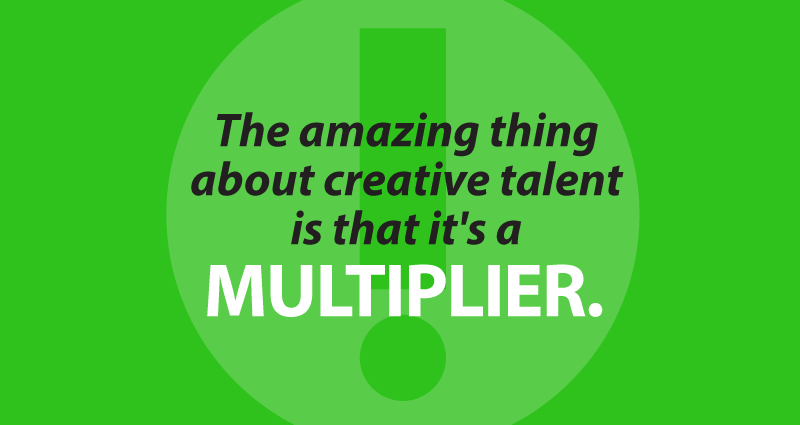
Are you buying talent or paper clips?
There’s a big difference between buying services based on talent and buying services from a vendor. To get the best results, your working relationship with someone selling talent (an artist) must be very different than with a vendor selling paper clips or bathroom remodeling.

The amazing thing about creative talent is that it’s a multiplier — the results from great creative work are dramatically better than results from merely good work. The good news is that the difference between good and great has a lot more to do with talent and relationships than with budget.
And since you are in charge of that relationship, here are even more tips for getting the most out of your agency:
1) Understand your brand.
Enter every marketing project with a clear, deep understanding of what’s unique and true about your brand and exactly how you’re living your brand. Be ready to communicate and correct this at every step. You’re the expert on your CU. Be ready to speak in emotional and psychological terms.
2) Stay emotional.
Creativity is about emotional communication and emotional connections (people always, always, always, make decisions based on emotion). Make sure the work is staying on track and true — make sure it always feels right.
3) Get ready to stretch.
Good creatives will stretch your brand in new directions. That’s what you hire them for — to bring a fresh perspective and think of things you never would have. Be willing to trust their judgement and consider new ideas. Don’t be afraid to be a little uncomfortable.
4) Stick to your audience.
Once you’ve defined an audience and your creative folks have found ways to speak to that audience, stick to it. Defend it. In most cases, your audience won’t be very much like you and definitely won’t be anything like your CU’s execs. Don’t let the CFO start rewriting copy and art directing based on her tastes — she’s not your target audience.
5) Be blunt. And verbose.
We creative folks are accustomed to feedback and constructive criticism. Tell us exactly what you think — it saves an awful lot of time. If you don’t like something, tell us exactly what and why. If you don’t know why, answer our questions so we can help you figure it out. This works better in person or on the phone, obviously. We need emotion and feelings to work with. By the same token, creatives absolutely thrive on praise. When we nail it, say so — we won’t charge more, promise. If you love this but hate that, be clear about what works and what doesn’t.
- In Case You Missed It – 2.25.2026 - February 24, 2026
- Solving the CU marketing “now what?” problem - February 17, 2026
- The Top Five SEO Fixes for Credit Union Websites - February 4, 2026
